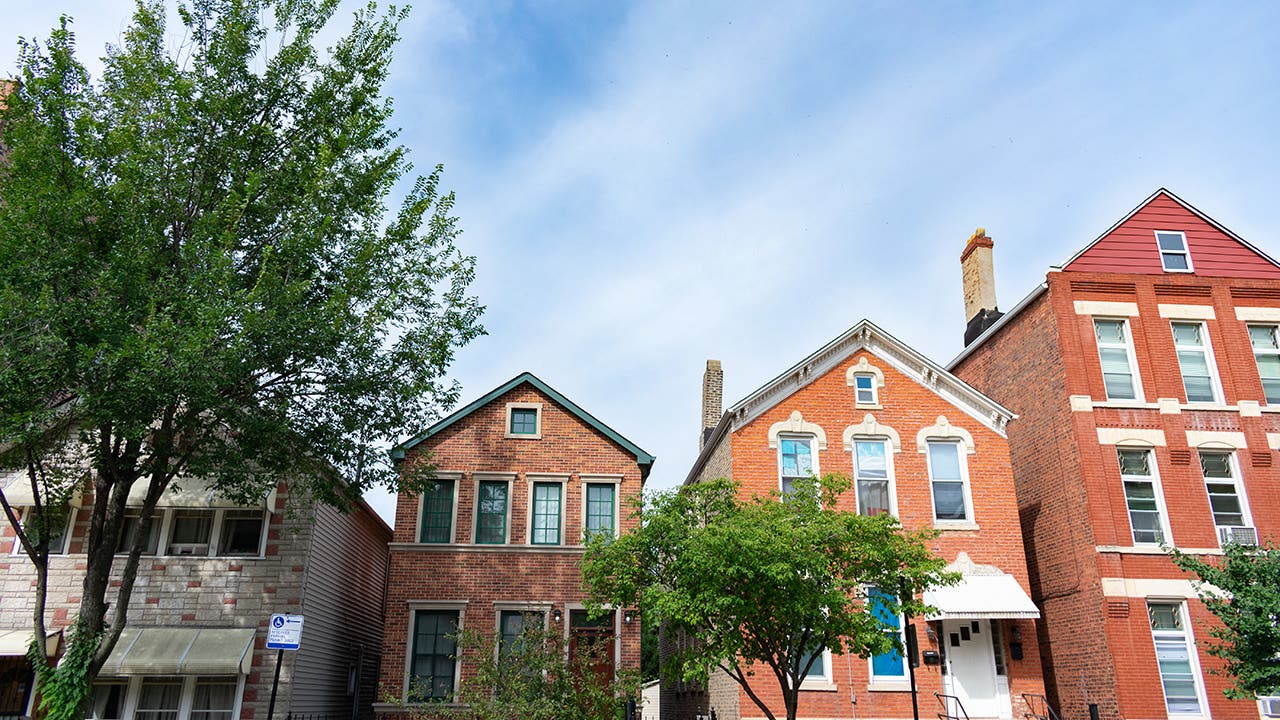Can I sell my house fast in Illinois?

There are pros and cons to selling your house in Illinois. On the one hand, prices are spiking: The median home price here is up more than 11 percent year-over-year, according to February Redfin data. So you could stand to make a tidy profit on the sale. On the other hand, though, it could take quite a while to realize that profit: Homes are spending a median of two months on the market before going into contract. It’s no surprise, then, that a lot of people wonder, “How can I sell my house in Illinois faster?” Let’s find out.
How fast can you sell your home in Illinois?
In February, houses across Illinois spent a median of 60 days on the market. That’s two full months before finding a buyer — and after that you still have to wait for the buyer’s financing to be approved before you can close.
However, that number typically goes down as you approach peak homebuying season in spring and summer. The Redfin data shows that in June, that 60-day figure was just 42 days. So, if you are able to time your listing for late spring or early summer, it will likely sell faster.
Need to sell even faster?
But what if you’re really in a hurry? For example, say you need to relocate for work right away or need the money from the sale fast and can’t afford to wait. If two months on the market doesn’t work for your timeline, you have other options that can help things move faster:
- Sell to a cash-homebuyer: There are plenty of companies that buy houses for cash in Illinois. These real estate investment firms typically make super-fast offers, within 24 hours or less, and can close within just a couple weeks rather than a couple months. They also usually buy homes no matter what condition they’re in, which means you don’t have to spend any money on repairs or getting the home market-ready. However, These companies need to make a profit on each transaction, which means their offer, while quick, won’t be high.
- Sell to an iBuyer: These online companies operate in much the same way as in-person homebuying companies, making fast cash offers that save you time and hassle but are not for top dollar. Offerpad, one of the biggest players in the iBuying space, buys homes in Illinois — but only in the Saint Louis area.
- List in as-is condition: If your property is in need of major repairs that you can’t afford to make, or just don’t have the time, think about listing it as-is. This disclaimer lets buyers know that yes, the home needs work, and no, you aren’t going to waste time negotiating over it.
-
Work closely with a real estate agent: A knowledgeable local agent can help you move quickly, provided you tell them upfront that you’re in a hurry to sell. Agents will know how to price your home to move and market it for speed — it won’t be as fast as an iBuyer or cash-homebuyer, but it can be faster than the typical sale. Keep in mind that you might have to be flexible in order to speed up the timeline, which may involve accepting a lower price than you’d hoped or offering seller concessions to sweeten the deal.
Selling your home fast for fair market value
Selling the fastest often means selling for less. And that might not be worth it to you. If you want to be sure you get fair market value for your house, hiring a top real estate agent is probably the best path forward. Look for someone who understands the intricacies of your local Illinois housing market, and before you list your home, discuss the following topics with them:
- Pricing your listing: Your agent will analyze local comps to determine what similar homes in the area are selling for — and can advise on whether you might need to ask for less in order to sell faster.
- Upgrading before you sell: Most major home-improvement projects don’t make back their cost when you sell, and waiting on contractors to finish a big job can delay your sale. Consider faster (and cheaper) ways to boost your property value.
- Making repairs: You’ll probably want to address the obvious stuff, like visible water damage or cracked kitchen tiles, before anyone tours your property. You don’t have to go crazy and address every little item, though.
- Staging your house: First impressions are everything in real estate, and staging your home can help you put its best foot forward so it sells faster. The cost of staging will vary depending on how much work it needs to be ready for the spotlight, so let your agent lead the way here.
-
Disclosures: Illinois home sellers must complete a property disclosure form that includes any knowledge of defects and problems that could impact the quality or safety of the property. In addition, if the home is part of a homeowners association community, you’ll need to provide the HOA’s financial details, rules and bylaws to the buyer.
Closing day
If you set out thinking, “I need to sell my house fast in Illinois,” reaching closing day will come as a relief. To ensure you get past this final hurdle, be ready to pay your share of seller’s closing costs. These often include:
- Real estate agent commissions: Paying the real estate agents involved will be the biggest chunk of money you, as the seller, hand over at closing. Agent commissions usually total around 5 or 6 percent of the home’s purchase price. So, if you sell your home for $500,000, you’ll likely need to pay around 5.5 percent of that, or $27,500, in commission fees.
- Title insurance: You might be asked to pay for a title insurance policy to cover the new owner, although you may be able to negotiate splitting this cost. This expense is based on the value of the property.
- Escrow fees: Escrow companies hold money until the transaction is ready to be completed. The fees for this service can run several hundred dollars.
- Transfer tax: The state of Illinois charges a transfer tax of $0.50 per every $500 of value, and counties charge an additional $0.25 per every $500 of value. Both of these costs are typically paid by the seller. Many local city governments also charge transfer taxes that can be much higher.
- Attorney fees: The state of Illinois does not require home sellers to hire a lawyer. However, it’s smart to consult one anyway, to make sure you’re compliant with all legal obligations and your interests are covered. With this much money at stake, a mistake can be costly.
- Concessions: If the buyer’s home inspection uncovers any necessary repairs, they may request that you cover a portion of their closing costs to make up for the expense they’re inheriting. This is not unusual, if you’re trying to sell quickly, it may be best to agree.
- Capital gains tax: If you lived in the house for fewer than two years, it wasn’t your primary residence or you’re making a significant profit on the sale, you could be subject to capital gains tax. Talk with a tax professional if you’re not sure.
Find a real estate agent
To sell your house in Illinois fast, you’ll probably have to be willing to settle for less money. But if speed is imperative, look to companies that buy houses for cash — these will be your fastest path to closing. If you’re able to be patient in order to earn top dollar, find a local real estate agent to guide you through the selling process. Talk to several candidates first to find someone you feel comfortable working with.
FAQs
-
If you’re willing to sell for a bit less, working with an iBuyer or a company that pays cash for houses will be your fastest option. They move very quickly and can often close the entire deal within a couple of weeks, or sometimes faster. Don’t let them rush you, though: If you work with one of these companies, be sure to read all the paperwork carefully, and don’t sign anything you don’t fully understand.
-
Yes, plenty of homeowners sell their homes on their own, without professional help. The “for sale by owner” route eliminates the need to pay a listing agent’s commission, but it also requires a lot of work. Be prepared to deal with creating and marketing your listing, coordinating showings, handling contract negotiations and more, all on your own.
Why we ask for feedback Your feedback helps us improve our content and services. It takes less than a minute to complete.
Your responses are anonymous and will only be used for improving our website.






